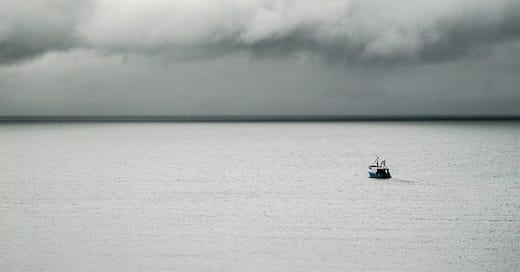Reflections
כל גל וגל, כל טלטול וטלטול של התבה היה בו להזהיר ולעורר את האנשים שבתוכה על הגלים והטלטולים, על האסונות והאפשריות של החיים
Some of my favorite pastimes include trips to the water. My grandfather was a sailor, and a love for water has seeped into my bones. Looking at water is, perhaps, a spiritual experience.
Rashi1 writes that “a flowing river is a delight to the sight of the eyes, makes the heart happy, and cleanses the sadness of the heart”.
Looking at the water can also se…
Keep reading with a 7-day free trial
Subscribe to Shui’s Newsletter to keep reading this post and get 7 days of free access to the full post archives.





